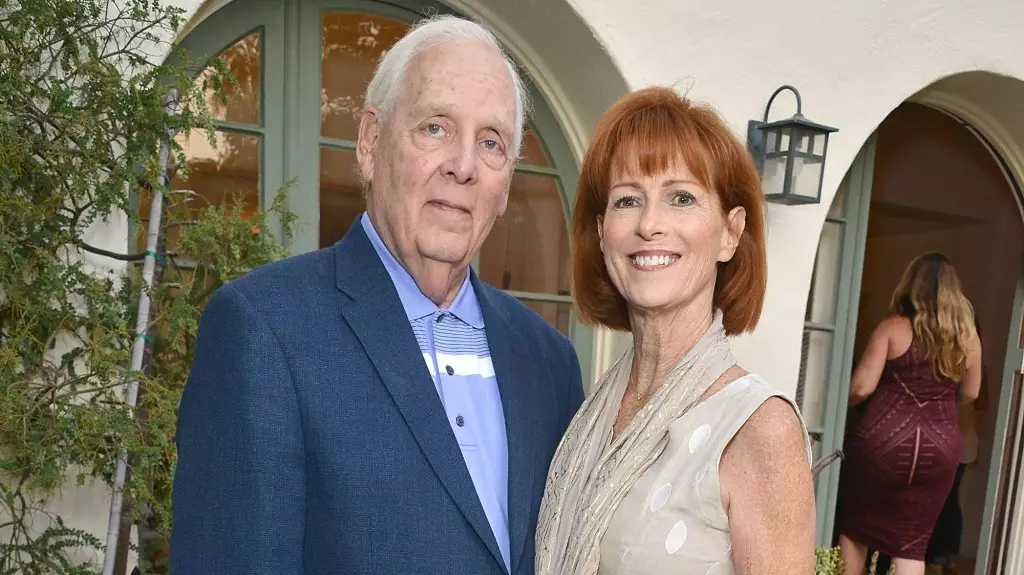Woody Fraser, a prominent figure in the landscape of American television, passed away at the age of 90 over the weekend. His remarkable career, spanning several decades, left an indelible mark on daytime television, particularly through seminal programs such as “The Mike Douglas Show” and “Good Morning America.” Fraser’s accomplishments were celebrated widely, highlighting his extensive contributions to the industry and the lives he touched through his work. His legacy revolves around innovation, mentorship, and a keen sense of production that transformed the way audiences engage with television.
Fraser began his illustrious career in television at NBC in 1960, where he quickly innovated the format of talk shows by introducing the co-host concept alongside Mike Douglas. This groundbreaking decision revolutionized the genre, paving the way for future hosts and collaborations in the television landscape. Fraser’s direction of “The Mike Douglas Show,” which ran for an impressive 21 years, set a benchmark for the format, combining entertainment with news in a manner that captivated audiences consistently. His ability to balance various elements—involving celebrity guests, musical performances, and topical discussions—was instrumental in shaping the modern talk show narrative.
During his tenure as the first executive producer of “Good Morning America,” Fraser established the show as a staple of morning television, demonstrating a profound understanding of audience dynamics and preferences. Under his leadership, “GMA” became known not only for its entertainment value but also for its commitment to delivering hard news, making it a trusted source for viewers. This dual focus on news and entertainment became a formula that many subsequent morning shows attempted to replicate.
Throughout his career, Woody Fraser garnered an impressive array of accolades, including multiple Daytime Emmy Award nominations for his work across various programs. His win in 1982 for “The Richard Simmons Show,” which he co-produced with his wife, Noreen Fraser—who tragically passed away in 2017—underscored his talents and collaborative spirit. This partnership was not only a personal union but a professional one that exemplified the blending of creative visions in the high-pressure realm of television production.
In addition to his Emmy wins, Fraser’s legacy is enriched by his mentorship of numerous industry professionals. His relationship with figures such as former Arkansas Governor Mike Huckabee emphasizes the impact he had on his colleagues and aspiring television producers. Huckabee’s tribute following Fraser’s passing, marking him as both a “pioneer” and a “legend,” reflects the broad respect he commanded within the industry.
Despite his many successes, Fraser’s career was not without its controversies. In 2018, he faced serious allegations regarding wrongful termination and sexual harassment stemming from his time with Hallmark Channel’s “Home & Family.” These accusations, brought forth by former employees, raised significant questions about workplace dynamics in an industry often scrutinized for its treatment of individuals, especially women. Such controversies serve as important reminders of the challenges that can accompany a long and celebrated career.
While these allegations may cast a shadow over his later years, they should not completely eclipse the contributions made throughout his extensive career. Fraser’s entry into high-stakes productions demonstrated not just his talent, but also his ability to navigate the evolving landscape of television.
Woody Fraser’s departure marks the end of an era, but his legacy will endure through the many programs he created and the numerous lives he influenced. His innovation and dedication reshaped the television landscape and left a lasting impact on viewers and professionals alike. As the industry reflects on his contributions, it becomes clear that Fraser was not simply a prolific producer and director, but a pioneer who understood the transformative power of television. His work continues to resonate, reminding us of the importance of creativity, mentorship, and the challenges of a dynamic medium that continues to evolve.

